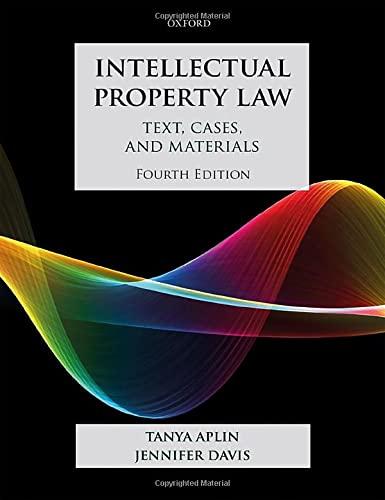Question
Edwin works in a large real estate office that owns and manages hundreds of residential apartment units in a major metropolitan area. The company has
Edwin works in a large real estate office that owns and manages hundreds of residential apartment units in a major metropolitan area. The company has its own in-house attorney, for whom Edwin is the paralegal. Edwin has not attended law school and is not a member of the state bar. In the last year, Edwin has filed eight complaints for summary ejectment (eviction) in small claims court on behalf of his employer seeking damages from past tenants. Recently, a tenant defendant objected to Edwin's appearance in court on behalf of the employer because Edwin is not an attorney. The defendant-tenant asked the court to throw out the complaint for that reason.
Edwin responded that his employer had given him express, written authority to appear on its behalf in legal matters valued at less than $5,000, the jurisdictional limit in that state's small claims court.
- In your state, would Edwin have engaged in the unauthorized practice of law?
- In small claims actions, must corporations in your state be represented by an attorney, or can they be represented by a corporate officer, or maybe just by an employee, such as Edwin?
- Does it make a difference if Edwin is just testifying to facts known to him personally, as opposed to engaging in cross-examination and argument? Why or why not?
Step by Step Solution
There are 3 Steps involved in it
Step: 1

Get Instant Access to Expert-Tailored Solutions
See step-by-step solutions with expert insights and AI powered tools for academic success
Step: 2

Step: 3

Ace Your Homework with AI
Get the answers you need in no time with our AI-driven, step-by-step assistance
Get Started


